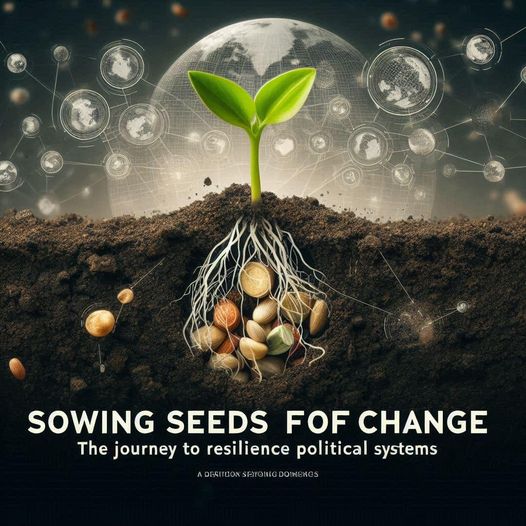
Political systems cannot be whimsically shaped because building a nation is akin to cultivating a garden. They must naturally evolve within their historical context and be nurtured accordingly, as exemplified by European history. Cultivating a prosperous nation necessitates starting from the grassroots, as taking shortcuts skips vital stages of natural growth and adaptation. Similarly, to establish a resilient political system, nations should plant seeds that align with their unique environment. Organic development brings inherent benefits and deeply integrates into society’s fabric.
After gaining independence from Britain, the United States established a distinct political system with separate and independently elected executive (President) and legislative (Congress) branches instead of following the British parliamentary system. In contrast, parliamentary experiments in some post-WW2 nations struggled because they were imposed without emerging naturally from societal evolution. Instead, they were enforced through amendments and changes. For example, democratic evolution in India did not organically arise from existing systems. The European parliamentary system, as seen in Britain, evolved gradually from a monarchy system. In Malaysia, the King’s role is largely ceremonial, with real political power vested in the elected Parliament and Prime Minister, mirroring aspects of the European parliamentary system. However, in India, Pakistan, and Israel, political systems were introduced rather than naturally evolved.
Political systems do not materialize from thin air; they develop from within society itself, evolving much like a plant. When the British Empire ended the rule of kingdoms in India in 1857, they did not prepare Mughal princes for a parliamentary system; instead, they appointed Governor Generals to administer their rule. Indians lacked awareness of global transformations during that era. If they had understood, they might have either resisted or embraced these changes.
In countries such as Pakistan, India, and Israel, religious ideologies have developed over time that directly contradict the principle that people in a specific area or region should not face discrimination based on their color, race, or religious beliefs, and should live as equal citizens within a nation. Some politicians and establishments in these countries aim to establish a religious state. However, they overlook the fact that religious states of past were typically established through conquest. In contrast, modern nation-states are not founded on the same principles of conquest. Therefore, they are in conflict with historical processes, akin to challenging history itself, which is akin to challenging the Almighty, the Creator of history.
Leaders of such nations must thoroughly analyze society, time, circumstances, and existing conflicts without hesitation. By understanding these factors and guiding society onto a natural path through dialogue and discussion about what is right and wrong, leaders can effectively plan their way out of conflicts. It is crucial for leaders to guide their people based on this analysis, ensuring they do not revert to past practices but instead propel society forward.

